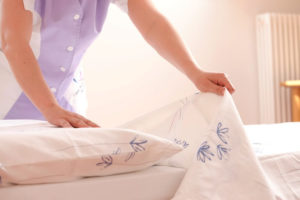 Hygienic cleanliness of the sleeping area is the main factor for a productive night's rest for each family member. Any housewife has already developed her own habits for changing bed linen - from two days to three months using the same set.
Hygienic cleanliness of the sleeping area is the main factor for a productive night's rest for each family member. Any housewife has already developed her own habits for changing bed linen - from two days to three months using the same set.
But studies conducted by specialists in the field of immunology and microbiology have proven that linen should be changed at least once a week. The main reasons for replacement are:
- dead skin cells and human dandruff.
Dust microorganisms (bacteria, fungi, yeast microorganisms, spores, viruses) and mites, leading to allergic reactions and decreased immunity.
- scales of epithelium and hair of domestic animals;
- secretions of the sebaceous, sweat and sex glands;
- remnants of cosmetics.
Failure to comply with the rules of personal hygiene and diet, leading to persistent stains and a lot of crumbs from snacking in bed.
These factors reduce the body's defenses and contribute to the manifestation of allergic reactions, asthma and other diseases.
How often do adults need to change bed linen and towels during the summer and winter seasons?
 It all depends on the individual characteristics of the human body and its cleanliness. Taking a shower every day after a hard day at work and sleeping in pajamas or a nightgown does not contribute to the rapid contamination of sheets and pillowcases at any time of the year.
It all depends on the individual characteristics of the human body and its cleanliness. Taking a shower every day after a hard day at work and sleeping in pajamas or a nightgown does not contribute to the rapid contamination of sheets and pillowcases at any time of the year.
Increased sweating on hot summer days or an active sex life require changing your underwear at least once every 7 days. At the same time, the duvet cover can be washed once every two to three weeks, since it gets dirty much less.
Nightgowns and pajamas must be changed every two days, and towels must be washed after four uses. It is recommended to dry in a ventilated place.
How often do bedding for newborns be changed?
 According to pediatric requirements, it is necessary to remake the baby's bed at least once every three days, and sometimes daily. If the newborn sleeps in a diaper and the bedding is not contaminated with urine or feces, then sheets can be changed at weekly intervals.
According to pediatric requirements, it is necessary to remake the baby's bed at least once every three days, and sometimes daily. If the newborn sleeps in a diaper and the bedding is not contaminated with urine or feces, then sheets can be changed at weekly intervals.
But, given the delicate baby skin and the child’s fragile immunity, it is recommended to replace baby bedding sets as often as possible. This will help protect the baby from the occurrence of dermatitis and allergic reactions, will allow him to gain strength, resist bacteriological attacks from the aggressive outside world, and grow healthy and active.
How often do children's bed linen be changed, including in preschool institutions?
The younger the child is, the more often the sleep sets need to be changed. According to “grandmother’s” instructions, washing clothes for babies is not easy, but it must be boiled and ironed on both sides. This helps reduce the risk of persistent diseases that require long-term and expensive treatment.
 Moreover, children love to eat candy before bed, which was given to them by loving relatives, or drink fermented milk products and juice; they leave stains that are difficult to remove. In this case, it is necessary to replace and wash soiled linen within a short period of time with special products to remove persistent stains.
Moreover, children love to eat candy before bed, which was given to them by loving relatives, or drink fermented milk products and juice; they leave stains that are difficult to remove. In this case, it is necessary to replace and wash soiled linen within a short period of time with special products to remove persistent stains.
In kindergartens, in accordance with the hygiene standards of preschool institutions, bed linen is changed at least once a week. In this case, its obvious contamination should be taken into account for each group of preschoolers. Parents of children have every right to check compliance with the standards for changing sleeping sets at any time.
How often to change bed linen for a sick person
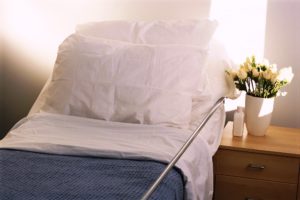 Acute periods of illness with high body temperature contribute to increased sweating and infection of the bed with pathogenic viruses or bacteria. Especially any skin manifestations - dermatitis, chickenpox, prickly heat, allergies and intestinal infections lead to the spread of pathogenic microbes inside bedding.
Acute periods of illness with high body temperature contribute to increased sweating and infection of the bed with pathogenic viruses or bacteria. Especially any skin manifestations - dermatitis, chickenpox, prickly heat, allergies and intestinal infections lead to the spread of pathogenic microbes inside bedding.
Regularly changing pillowcases, sheets and mattress covers will help avoid relapses of the disease and provide a healthy microclimate in the bed of the sick person and all members of his family. This is especially important when the family has small children who are unable to resist infectious diseases.
Useful tips and tricks for a comfortable sleep
- It is recommended to choose bedding from natural materials;
- it is most optimal to use sets of pastel shades, which are easier to withstand regular washing and do not lose the saturation and brightness of the pattern even at high temperatures;
- after waking up, it is necessary to keep the bedding in the fresh air, which has a detrimental effect on parasitic microorganisms and will keep it fresh for some time of use;
- high temperature washing (about 50-60 °C) and drying in a washing machine in a well-ventilated area helps to better remove all types of contaminants.
- It is not recommended to wash them with clothes;
- ironing clothes solders the fibers of the fabric, strengthening them, making it aesthetically attractive and compact for storing in a closet, it tucks well and is pleasant to the touch;
- high-quality powder and special conditioning agents allow you to add freshness to bedding sets and preserve the structure of the fabric;
- Using laundry bleach helps prevent the spread of pathogenic bacteria;
- Regular airing of the room before going to bed, timely cleaning and replacement of pillows and blankets contribute to the long-term use of bed linen;
- The mattress cover prevents dirt from collecting and penetrating into the mattress. It is made from high-quality synthetic materials, can be easily removed and washed, and can reduce allergic reactions and prevent asthmatic attacks.
 Do you like to spend any free minute in the arms of Morpheus? Need some sleep after a busy week at work? Do you prefer breakfast in bed with your loved one while watching an interesting TV series?
Do you like to spend any free minute in the arms of Morpheus? Need some sleep after a busy week at work? Do you prefer breakfast in bed with your loved one while watching an interesting TV series?
Think about changing your bedding in a timely manner and enjoy a comfortable rest in the arms of your loved one.


 1
1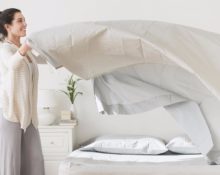



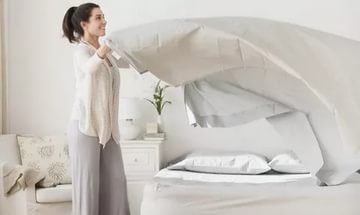
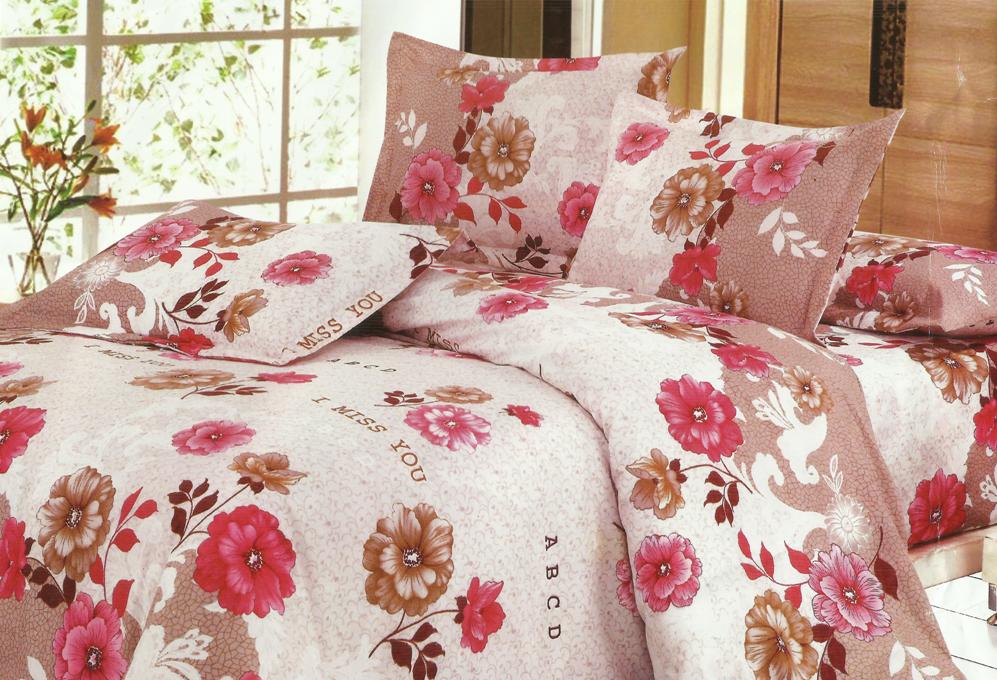

My mother taught me to change my bed linen weekly; it was a tradition on Saturdays. But recently I began to change it more often, about twice a week. I just noticed that I fall asleep better on clean, fresh linen. I can also change the bedding outside of the plan if, for example, for some reason I was unable to take a shower at night or got sick.